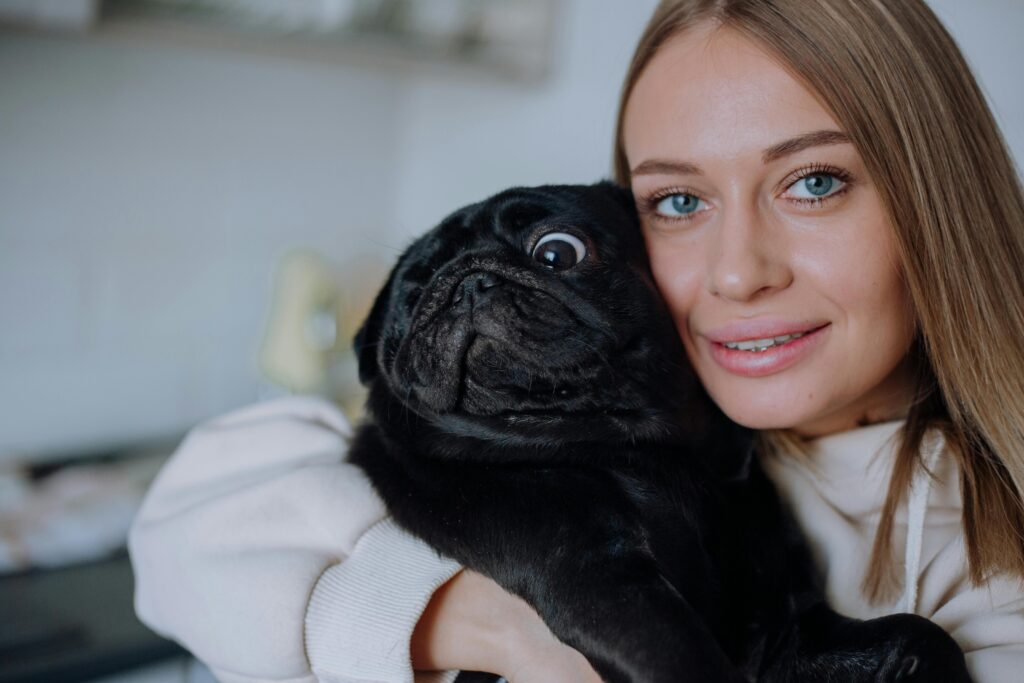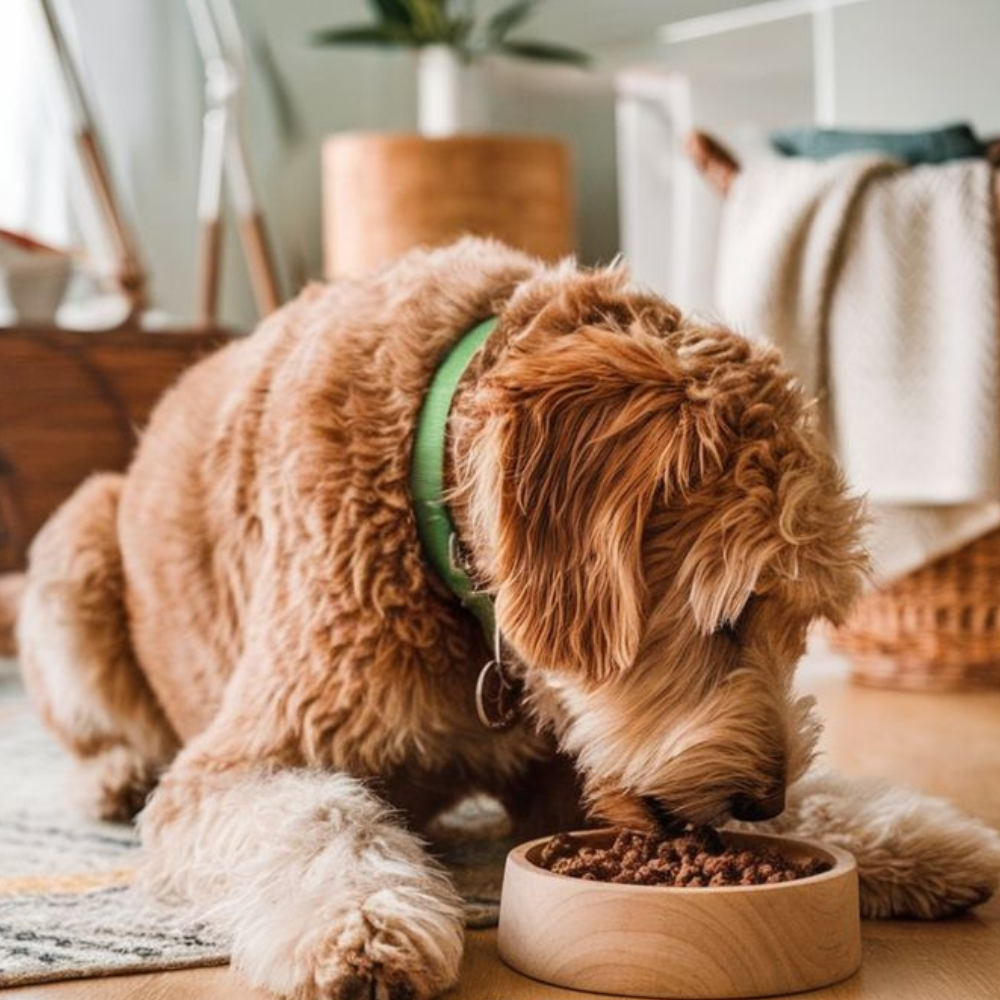🧴 Puppy Care Guide: Keep Your Puppy Happy and Healthy
🐾 Introduction
A healthy puppy is a happy puppy — and early health care sets the foundation for a long, joyful life together.
From regular vet checkups to daily at-home observations, taking the time to monitor your puppy’s wellbeing helps prevent problems before they become serious.
This comprehensive guide explains how to plan vet visits, perform basic home checks, recognize early warning signs, and build a preventive care routine that keeps your puppy thriving.

🩺 Why Puppy Health Checks Matter
Just like human babies, puppies need regular monitoring as they grow. Their immune systems are still developing, and even small issues can progress quickly if unnoticed.
✅ Benefits of routine health checks:
- Detect illnesses early
- Build trust with your vet
- Track growth and nutrition
- Prevent common infections
- Establish lifelong care habits
💡 Prevention costs less — and saves your puppy from unnecessary discomfort.

🐶 Your Puppy’s First Vet Visit
Your first vet appointment should take place within 3–5 days after adoption (or immediately if you suspect illness).
🧾 What to bring:
- Adoption or breeder papers
- Vaccination record (if any)
- Fecal sample (for parasite testing)
- Questions about diet or behavior
👩⚕️ What the vet will check:
- Weight, temperature, and heart rate
- Eyes, ears, and mouth
- Skin and coat condition
- Joint mobility
- Heart and lung sounds
- Parasite control and vaccination plan
💬 Use this visit to build trust — your vet will become your partner in your puppy’s health journey.

📅 Recommended Puppy Vet Visit Schedule
| Puppy Age | Visit Type | What’s Checked |
|---|---|---|
| 8 weeks | First general exam | Vaccines, parasites, baseline health |
| 12 weeks | Follow-up exam | Growth, deworming, 2nd vaccines |
| 16 weeks | Booster exam | Final core vaccines, flea/tick prevention |
| 6 months | Adolescent check | Weight, teeth, spay/neuter discussion |
| 12 months | Annual exam | Full physical, bloodwork if needed |
🎯 Even after the first year, maintain an annual checkup — or every 6 months for high-energy breeds.

🏠 At-Home Puppy Health Checks
You are your puppy’s daily caretaker — and no one knows them better.
Perform simple checks weekly to detect early issues.
🧠 Step-by-Step Home Health Routine
👀 1. Eyes
- Should be clear, bright, and free of discharge.
- Redness or cloudiness may indicate infection or allergies.
👂 2. Ears
- Check for redness, wax buildup, or odor.
- Gently clean outer ear with vet-approved wipes.
🦷 3. Mouth & Teeth
- Gums should be pink (not pale or red).
- Watch for bad breath — can indicate dental disease.
🐾 4. Skin & Coat
- Run your fingers through the fur.
- Look for fleas, bumps, or dandruff.
- A healthy coat is shiny and smooth.
🦴 5. Joints & Movement
- Observe how your puppy walks, runs, and jumps.
- Limping or stiffness could mean injury or hip dysplasia.
💩 6. Stool & Urine
- Firm, brown stool = normal.
- Diarrhea, blood, or mucus = vet visit.
- Urine should be pale yellow and steady in flow.

🍽️ Nutrition and Weight Control
Proper feeding is part of preventive health care.
Overweight puppies are at risk for joint problems, heart disease, and diabetes later in life.
🐕 How to check if your puppy’s weight is healthy:
- You should feel the ribs easily but not see them.
- Waist visible when viewed from above.
- Belly tucks up slightly when viewed from the side.
💡 Track your puppy’s weight monthly — use a chart or pet app to record progress.
💉 Parasite Prevention
Puppies are highly susceptible to internal and external parasites.
Common ones include:
- Fleas & ticks: cause itching and transmit diseases
- Worms (roundworms, hookworms): affect digestion
- Mites: cause mange or ear irritation
🛡️ Prevention Plan:
| Type | Start Age | Frequency |
|---|---|---|
| Deworming | 2 weeks old | Every 2–3 weeks until 12 weeks, then monthly |
| Flea/Tick prevention | 8 weeks | Monthly |
| Heartworm prevention | 8 weeks | Monthly (prescription only) |
⚠️ Always use vet-approved treatments — human products can be toxic to dogs.

🦷 Dental Health: The Hidden Factor
Dental care is often overlooked but crucial.
Puppies start losing baby teeth around 4–6 months, and permanent teeth emerge by 7 months.
🪥 Care routine:
- Brush teeth 3× per week
- Use enzymatic dog toothpaste
- Provide dental chews or toys
Bad breath or drooling could indicate gum disease or retained baby teeth — check with your vet.
💉 Vaccination and Booster Overview
Vaccines are your puppy’s first line of defense against deadly diseases.
| Vaccine | Protects Against | Schedule |
|---|---|---|
| DHPP | Distemper, Hepatitis, Parvo, Parainfluenza | 6–8 weeks, 10–12 weeks, 14–16 weeks |
| Rabies | Rabies virus | 12–16 weeks, then every 1–3 years |
| Bordetella | Kennel cough | Optional, for social puppies |
| Leptospirosis | Waterborne bacteria | Optional, based on region |
🩹 Keep records updated — most groomers, trainers, and travel agencies require proof of vaccination.

🧘 Stress, Behavior, and Health
Behavioral changes are often the first sign of illness.
Look out for:
- Sudden lethargy or hyperactivity
- Refusal to eat or play
- Hiding, whining, or aggression
💬 If your puppy “feels off,” trust your instinct — behavior reflects health.
🚫 Common Puppy Health Mistakes
| Mistake | Why It’s Harmful | Better Way |
|---|---|---|
| Skipping early vet visits | Misses key vaccines and health checks | Visit within first week |
| Using human medicine | Toxic to dogs | Always vet-approved meds only |
| Overfeeding | Causes obesity | Follow portion guide |
| Ignoring mild symptoms | Can worsen quickly | Monitor daily and consult vet |
| Inconsistent parasite control | Reinfection risk | Stick to monthly treatments |
🐕 Consistency is the secret to lifelong health.

🩺 When to Call the Vet Immediately
Contact your veterinarian if you notice:
- Persistent vomiting or diarrhea
- Refusal to eat for 24+ hours
- Heavy breathing or coughing
- Pale gums or swollen abdomen
- Seizures or collapse
💡 Puppies hide pain well — early intervention saves lives.

🐕 Conclusion
Caring for your puppy’s health is about routine, awareness, and love.
When you build a habit of regular vet visits and home checks, you’re doing more than preventing illness — you’re creating a foundation for a long, active, and joyful life.
💖 Healthy habits today mean a stronger, happier dog tomorrow.
💬 Puppy Health FAQ
How often should I visit the vet?
Every 3–4 weeks during puppyhood, then annually for adults.
How do I know if my puppy is sick?
Look for loss of appetite, lethargy, vomiting, or changes in stool.
What’s the normal temperature for a puppy?
Between 101°F–102.5°F (38.3°C–39.2°C).
Should I get pet insurance for my puppy?
Yes — it can cover unexpected emergencies and routine care.
Are home remedies safe for puppies?
Only under vet supervision. Puppies react differently than adult dogs.


Leave a Reply